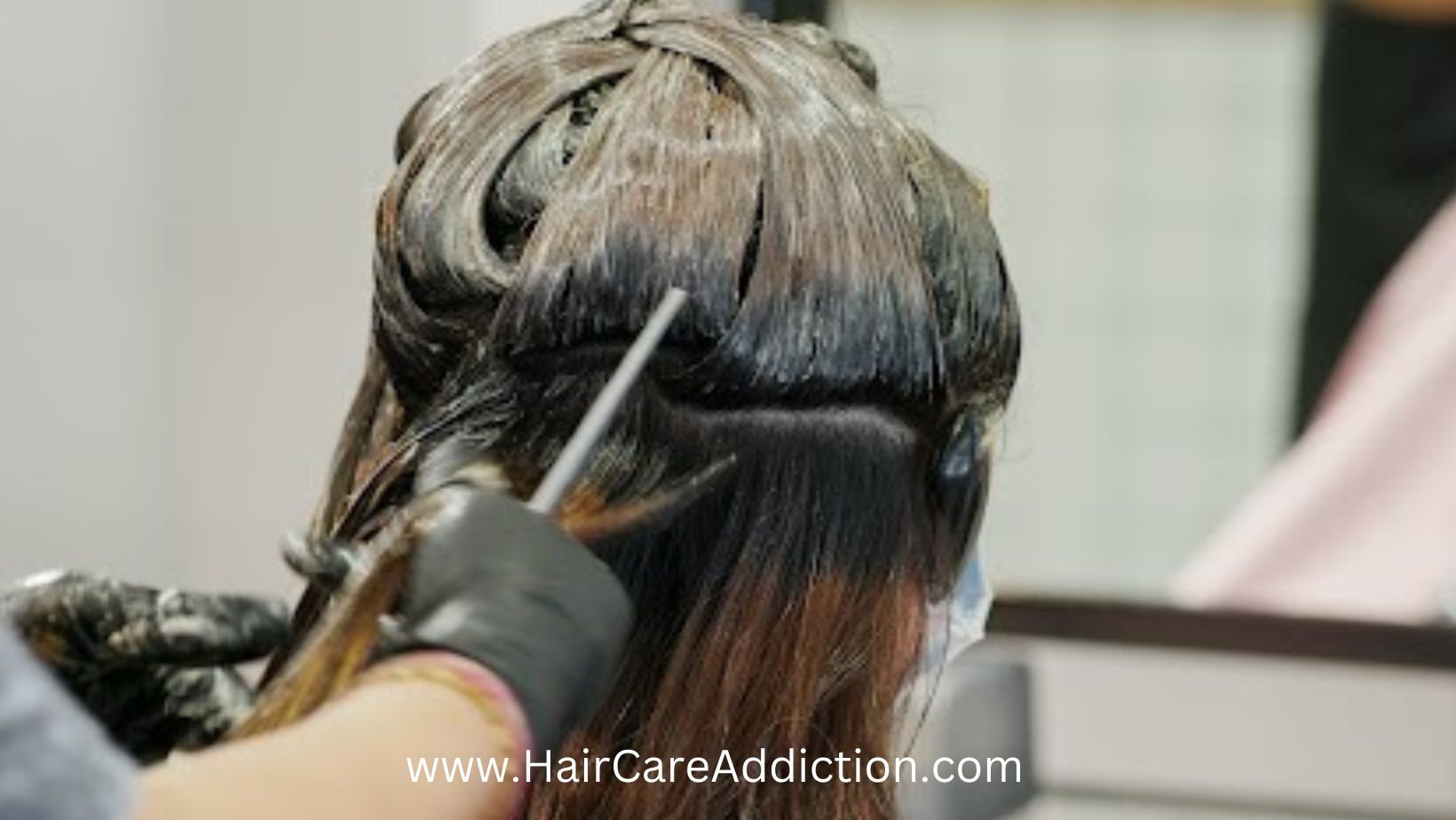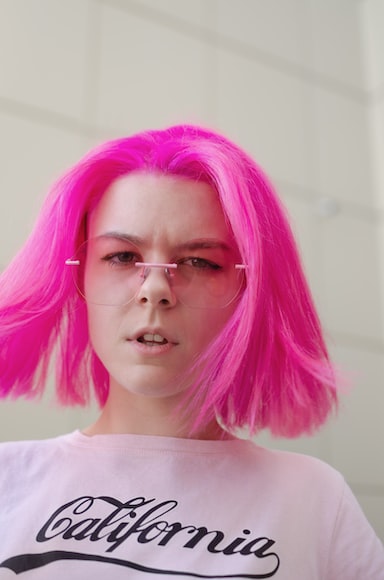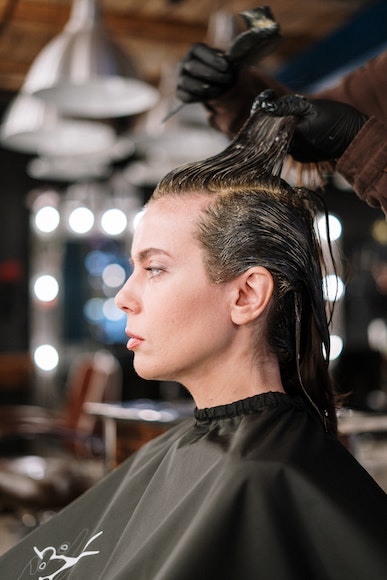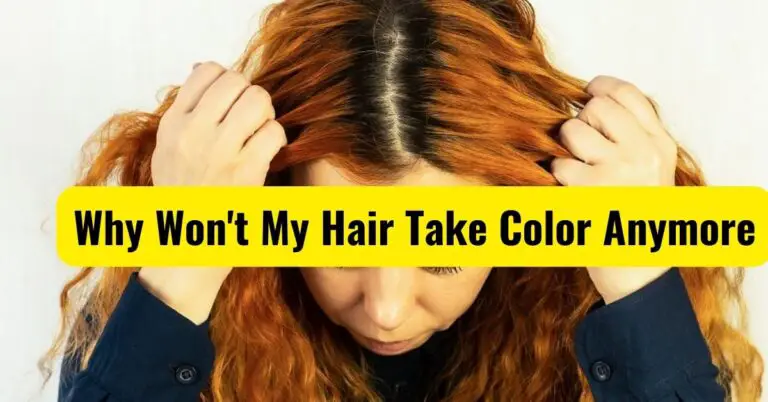Oil After Henna: The Role of Oil in Post-Henna Care

Henna is a popular natural dye that is used to strengthen hair and decorate the skin.
While it has many advantages, it can also be drying for some people.
This article discusses whether you should apply oil after henna application, as well as guidelines and tips for maintaining healthy and vibrant hair after henna application.
Benefits of Applying Oil After Henna
Henna is a natural dye that can brighten and condition your hair.
However, in order to get the best results from henna, apply oil after rinsing it off.
Here are some advantages to oiling your hair after henna treatment:
Henna works by depositing pigment and nutrients into the hair shaft to lock in color and conditioning. You can seal in the color and conditioning effects of henna by applying oil after it, making it last longer and look more vibrant.
Henna also helps to strengthen your hair by coating it with a protective layer. Oiling your hair after henna can help to strengthen this layer, making it more resistant to damage and breakage. Oiling your hair also adds shine and smoothness, improving its appearance and texture.
After rinsing off the henna, you can apply olive oil or Vaseline to your hair to intensify the color. These products can aid in the oxidation of henna pigment, resulting in a deeper and darker shade. Vicks can also be used to achieve a similar effect.
When to Apply Oil After Henna?

There is no definitive answer to this question because everyone’s preferences and experiences with henna and oil differ.
However, here are some general guidelines to consider:
- Applying oil prior to henna can prevent the henna from penetrating the hair shaft and developing a rich color.
- Applying oil immediately after henna can interfere with the oxidation process, causing your color to fade faster.
- Wait at least 24 hours after henna application before applying oil to allow the henna to set and darken.
- Apply the oil sparingly and gently massage it into your scalp and hair, being careful not to rub or scrub the hennaed areas.
- Allow the oil to sit for a few hours or overnight, then rinse with a gentle shampoo and conditioner.
Read Also: Best Oil After Hair Shower
How to Use Oil After Henna?
Depending on your hair type, condition, and preference, you can use a variety of oils after henna. Some of the most well-known are:
| Best Oil After Henna | Benefits |
|---|---|
| Coconut Oil | A light and nourishing oil that moisturizes hair and scalp, adds shine and softness, prevents split ends and breakage, and can enhance the red tones of henna. |
| Mustard Oil | A stimulating and warming oil that increases blood circulation in the scalp, promotes hair growth, fights dandruff and infections, and can deepen the brown tones of henna. |
| Olive Oil | A rich and moisturizing oil that hydrates hair and scalp, repairs damage, smooths frizz and flyaways, balances the scalp’s pH, and prevents itching and irritation. |
How to Moisturize Hair After Henna?
There are other ways to moisturize your hair and keep it healthy and shiny besides applying oil after henna. Here are some pointers:
- After shampooing, apply a conditioner, preferably one that is natural, organic, or chemical-free. This will aid in moisture retention and protect your hair from dryness and damage.
- Depending on your hair’s needs, use a deep conditioning mask once a week or every two weeks. You can make your own mask by combining yogurt, honey, banana, avocado, egg, and aloe vera gel. Apply the mask to your hair, leaving it on for 20 to 30 minutes before rinsing with cool water.
- After towel-drying your hair, apply a leave-in conditioner or serum, focusing on the ends. This will help your hair detangle, prevent frizz, and add shine and softness.
- Heat tools such as blow dryers, curling irons, and straighteners should be avoided on hennaed hair because they can dry out the hair and fade the color. If you must use them, apply a heat protectant spray or serum first and use the lowest heat setting possible.
- Washing your hair too frequently or using harsh shampoos or products containing sulfates, parabens, alcohol, or artificial colors or fragrances is not recommended. These can deplete your hair’s natural oils and moisture, leaving your henna color dull and lifeless.
Conclusion
Henna is a wonderful natural way to color your hair and enjoy its many benefits.
However, henna can be drying for some people’s hair, so it’s important to moisturize after henna to keep your hair healthy and shiny.
Applying oil after henna is one of the best ways to achieve this, as long as you wait at least 24 hours.
Other methods, such as conditioners, masks, serums, or natural products, can be used to hydrate your hair and protect your henna color.






